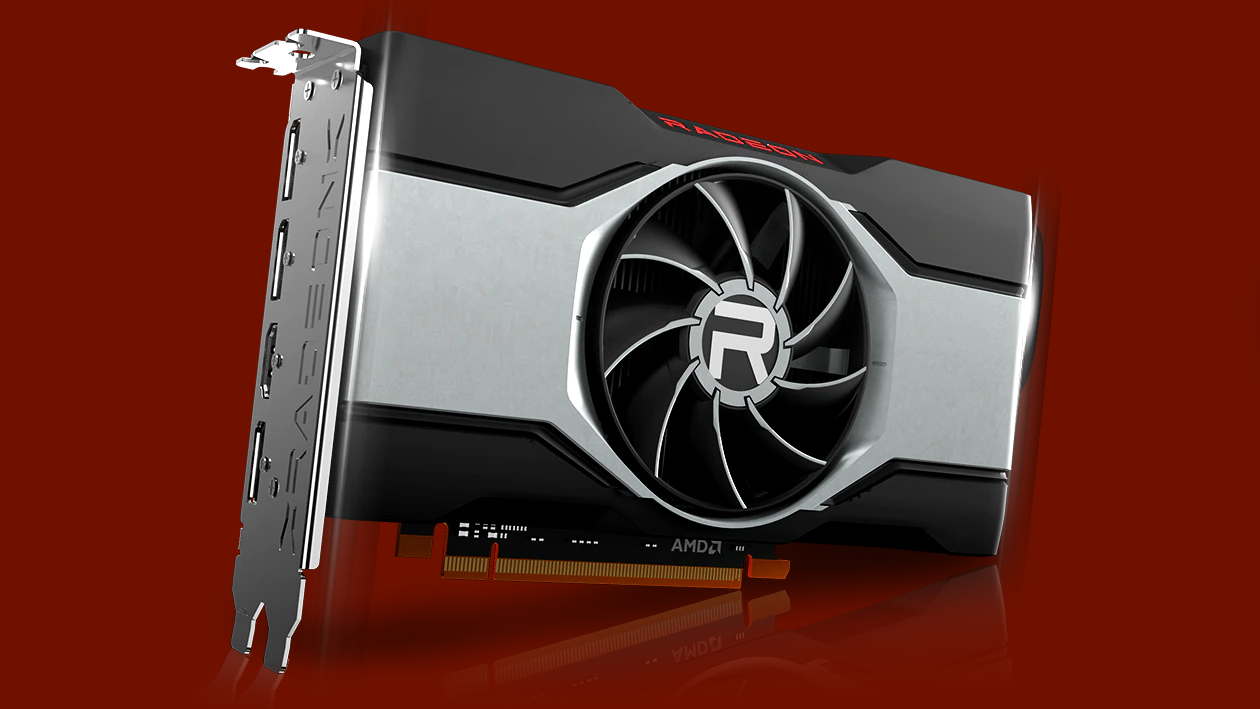The AMD RX 6500 XT might not be as affordable as we thought
At least in some regions

AMD revealed the wallet-friendly Radeon RX 6500 XT graphics card for desktop PCs at CES 2022, with an MSRP of $199 (around £150 / AU$280), though sadly this new 'affordable' GPU has already been the victim of artificial inflation.
As reported by WCCFTech, AMD made several statements over the CES show in interviews regarding its determination to keep the cost of the RX 6500 XT low and stock plentiful, with AMD CEO Lisa Su telling PCWorld in an interview that "We’re positioning the launch such that – and I know, you guys always say, ’Well, yeah, they’re just saying that’ – but we really are positioning the launch at a $199 price point. It is sort of affordable to the mainstream. You know, we intend to have a lot of product out there."
Unfortunately, some retailers have other ideas about the price tag, with CowCotland reporting that some stores in France have it already priced up at €299 after tax. A direct conversion from $199 would be €176, making the RX 6500 XT over 70% over the MSRP set in US dollars.
The RX 6500 XT is a Navi 24 (6nm) GPU and boasts 1,024 Stream Processors, with 4GB GDDR6 memory (and a memory bandwidth of up to 144GB/s). The base clock speed is 2610MHz with boost up to 2815MHz, which would make this firmly a budget card in regards to performance, so the higher-than-expected price tag is sure to rub some salt into the wounds of folk trying to buy a new, affordable GPU.
It isn't clear if the GPU will be made available at a more affordable price closer to that of the MSRP on AMD's official website, but the inflated price isn't anything we haven't seen before. Many of the graphics cards in recent years have had non-correlated prices outside of the US, especially across third-party retailers, something that doesn't make this a pill any easier to swallow for those living outside of the US.
Analysis: Are the days of 'budget' GPUs over?
Even with the small army of cards that have been released by both AMD and Nvidia this generation, there's been plenty of talk surrounding how there are no 'truly' budget GPUs available on the market now. In that line of thinking, I feel a sad reality is that what we perceive to be 'budget' has evolved with rising inflation, and many of our salaries or disposable income simply don't stretch as far as they used to.
A budget GPU is generally considered to be one under $200, though it might be time to bump up that threshold. Don't mistake me for sympathizing with manufacturers on pricing though – there is a distinct shortage of new graphics cards available that hobbyist builders and PC gamers can actually afford to buy, with people scrambling to try and snap up something that is actually available on shelves (virtual or brick-and-mortar).
Sign up for breaking news, reviews, opinion, top tech deals, and more.
AMD needs to make good on that promise to have enough stock of the 6500 XT to go around, otherwise it's likely doomed to fall victim to the same inflation (and scalping) afflicting other products on the market right now, rendering that recommended price pretty much meaningless.
That said, Lisa Su also predicted that supply woes aren’t likely to improve much until the second half of 2022, so it might be better to retain a pessimistic mindset for now to avoid any disappointment.
- Check out all of TechRadar's CES 2022 coverage. We're bringing you all the breaking tech news and launches, everything from 8K TVs and foldable displays to new phones, laptops and smart home gadgets.

Jess is a former TechRadar Computing writer, where she covered all aspects of Mac and PC hardware, including PC gaming and peripherals. She has been interviewed as an industry expert for the BBC, and while her educational background was in prosthetics and model-making, her true love is in tech and she has built numerous desktop computers over the last 10 years for gaming and content creation. Jess is now a journalist at The Verge.